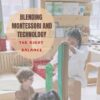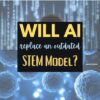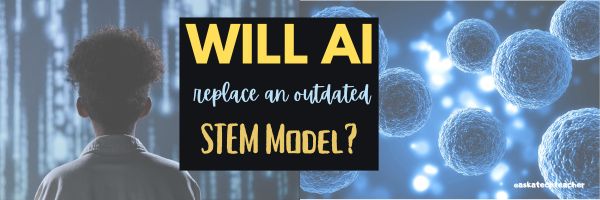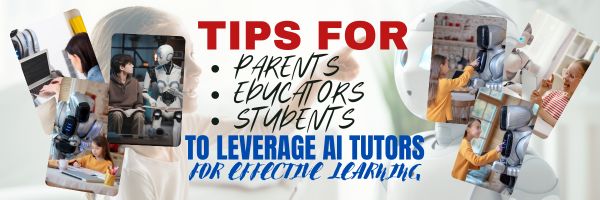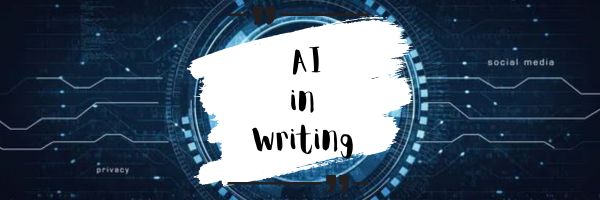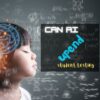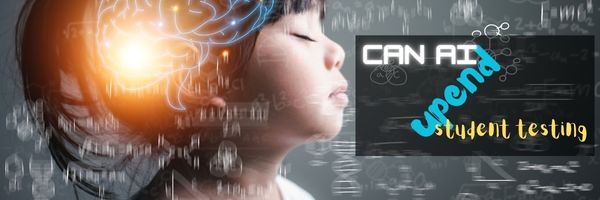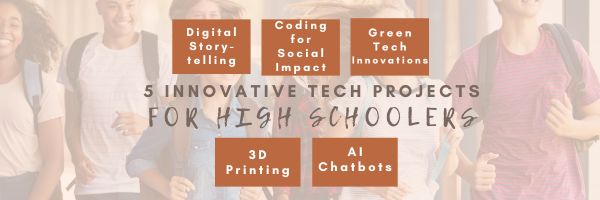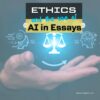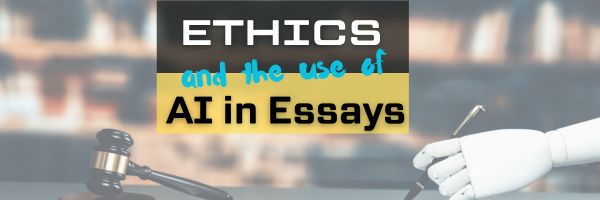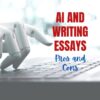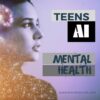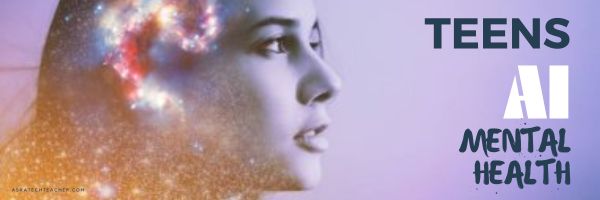Tag: AI
Blending Montessori and Technology: Finding the Right Balance in Early Childhood Education
Blending Montessori and Technology: Finding the Right Balance in Early Childhood Education
These days, it seems that all toddlers master how to swipe across a screen before they learn to tie their shoes. Technology is everywhere and is not leaving anytime soon. For parents and educators who follow or are interested in the Montessori approach, which emphasizes hands-on activity, self directed learning, and natural curiosity, this article will come in handy. Can the Montessori ideology and technology coexist? Is it possible for children to continue using tablets, phones, etc. without losing that tangible, earthy learning process?
The quick answer is yes. But it takes thoughtfulness, balance, and a profound grasp of why Montessori works in the first place.
What Montessori Is Really About
First and foremost, we must understand a bit more about the Montessori approach and where its heart is. Dr. Maria Montessori’s belief was in child-directed learning. Rather than being told what to learn and how to do it, children find out about their world through materials that are fashioned to meet their needs at various levels of development.
Montessori materials, most commonly known as Montessori toys, are hands-on tools used in many Montessori classrooms. These tools are not noisy or flashy, most of the time these are materials made of wood. They’re meant to help develop fine motor skills, improve concentration, problem solving skills, and help a child be self sufficient. While these materials can be entertaining, that is more of a bonus than their main purpose. For example a knobbed cylinder or a bead chain, each material has a unique function that guides a child to master a skill through repetition and exploration.
Technology should compliment and never replace these moments of learning. (more…)
Share this:
- Click to share on Facebook (Opens in new window) Facebook
- Click to share on X (Opens in new window) X
- Click to share on LinkedIn (Opens in new window) LinkedIn
- Click to share on Pinterest (Opens in new window) Pinterest
- Click to share on Telegram (Opens in new window) Telegram
- Click to email a link to a friend (Opens in new window) Email
- More
Will AI-driven Education Replace STEM? Experts think so
When I saw this ESchoolMedia article, my first response was, He** no! but I paused to ask why a reputable magazine would even ask this question. Before reading the article, I asked Grok the same question. Here’s what a generative AI has to say about that issue:
The end of STEM: Why AI-driven education must replace an outdated model
Share this:
- Click to share on Facebook (Opens in new window) Facebook
- Click to share on X (Opens in new window) X
- Click to share on LinkedIn (Opens in new window) LinkedIn
- Click to share on Pinterest (Opens in new window) Pinterest
- Click to share on Telegram (Opens in new window) Telegram
- Click to email a link to a friend (Opens in new window) Email
- More
How to Leverage AI Tutors for Effective Learning Tips for Parents, Educators, and Students
Generative AI is all anyone in education talks about anymore so the Ask a Tech Teacher team wanted to provide a collection of tips for using AI as a tutor. Rather than us introducing this article, we thought we’d like Grok do it himself:
How to Leverage AI Tutors for Effective Learning: Tips for Parents, Educators, and Students
AI tutors transform learning. They generate instant feedback and personalized lessons. While they are powerful tools, they don’t replace traditional classroom instruction. Instead, they can complement such. Students, parents, and teachers must be proactive in using AI to maximize its benefits.
The key lies in the balance. Use AI to enhance learning, not replace critical thinking or human interaction. Smart learning assistants are powerful allies. The challenge is knowing when to trust the technology and when to step back and think for yourself. (more…)
Share this:
- Click to share on Facebook (Opens in new window) Facebook
- Click to share on X (Opens in new window) X
- Click to share on LinkedIn (Opens in new window) LinkedIn
- Click to share on Pinterest (Opens in new window) Pinterest
- Click to share on Telegram (Opens in new window) Telegram
- Click to email a link to a friend (Opens in new window) Email
- More
Teacher-Authors: What’s Happening on my Writer’s Blog
A lot of teacher-authors also read my WordDreams blog (for writers). In this column, I share the most popular post from the past month.
AI in Writing
I use AI judiciously and never without adult supervision. It is efficient if well directed, provides good summaries of articles on a factual level, and is fast if I’m not looking for clever, creative, complex, or any sort of conscience. Accepting those limitations, I find it good for summaries of articles on my education blog and lists for just about anything. AI loves lists.
What AI can’t do is at the absolute core of fiction writing:
- provide personal experience
- act with any sort of moral compass
- make judgments
- bare its soul
- bleed on a page
- put the lion in a character’s heart
- sacrifice, say, the easy wrong for the hard right
- choose the right attitude in a given set of circumstances
- find a North star
- put charisma in a story or character–or setting
As a result, I use it where it suits, avoid it where it fails. How about you?
Here’s the sign-up link if the image above doesn’t work:
https://forms.aweber.com/form/07/1910174607.htm
“The content presented in this blog are the result of creative imagination and not intended for use, reproduction, or incorporation into any artificial intelligence training or machine learning systems without prior written consent from the author.”
Jacqui Murray has been teaching K-18 technology for 30 years. She is the editor/author of over a hundred tech ed resources including a K-12 technology curriculum, K-8 keyboard curriculum, K-8 Digital Citizenship curriculum. She is an adjunct professor in tech ed, Master Teacher, webmaster for four blogs, freelance journalist on tech ed topics, contributor to NEA Today, and author of the tech thrillers, To Hunt a Sub and Twenty-four Days. You can find her resources at Structured Learning.
Share this:
- Click to share on Facebook (Opens in new window) Facebook
- Click to share on X (Opens in new window) X
- Click to share on LinkedIn (Opens in new window) LinkedIn
- Click to share on Pinterest (Opens in new window) Pinterest
- Click to share on Telegram (Opens in new window) Telegram
- Click to email a link to a friend (Opens in new window) Email
- More
13 AI Detectors and 11 Plagiarism Detectors
Here are popular online resources to teach about AI detection and Plagiarism detection:
AI Detector
Click here for updates to this list:
- AI Content Detector–from Crossplag
- AI Text Classifier–from the creators of ChatGPT to identify writing from an AI
- ChatGPT–has developed their own tool to find AI-generated writing
- Content at Scale AI Content Detector
- Contentdetector.org
- Copyleaks AI Content Detector
- Crossplag–detect AI content
- GPTZero–to find text generated by an AI
- Plagiarismchecker.ai
- TurnItIn ithenticate–new tool to identify AI-generated text
- UNDETECTABLE.AI
- Winston A.I
- ZeroGPT
Finding plagiarism
Share this:
- Click to share on Facebook (Opens in new window) Facebook
- Click to share on X (Opens in new window) X
- Click to share on LinkedIn (Opens in new window) LinkedIn
- Click to share on Pinterest (Opens in new window) Pinterest
- Click to share on Telegram (Opens in new window) Telegram
- Click to email a link to a friend (Opens in new window) Email
- More
AI has potential to upend student testing
AI has the potential to revolutionize education for better or worse–jury’s still out on that. No one denies it can make student testing more efficient, faster, possibly leading to better educational outcomes for all learners. Key positives:
- Tailor personalized learning paths
- Adapt testing to challenge students at their appropriate level of knowledge
- Provide instant feedback
- Reduce bias
- Analyze data quickly to find learning patterns and trends.
- Identify plagiarism or cheating
But there are drawbacks educators must watch for and may take time to resolve. Check out these concerns:
- Bias and fairness
- Privacy and data security
- Reliability and accuracy
- Dependency on technology
- Digital divide
- Loss of human connection
- Ethical considerations
Here’s a good article from The Hechinger Report that offers an overview of current thinking on how AI is likely to reshape student testing options:
AI has potential to upend student testing
As AI advances, student testing could become highly personalized and dynamic, offering scenarios like empathetic avatar interactions and adaptive questions. While experts acknowledge risks such as bias and access disparities, they foresee AI-driven assessments reshaping education by tailoring tests to individual needs and promoting deeper learning. (more…)
Share this:
- Click to share on Facebook (Opens in new window) Facebook
- Click to share on X (Opens in new window) X
- Click to share on LinkedIn (Opens in new window) LinkedIn
- Click to share on Pinterest (Opens in new window) Pinterest
- Click to share on Telegram (Opens in new window) Telegram
- Click to email a link to a friend (Opens in new window) Email
- More
5 Innovative Tech Projects for High Schoolers
Great end-of-year projects for high school students, from the Ask a Tech Teacher team:
5 Innovative Tech Projects for High Schoolers
Project-based learning has gained significant popularity in recent times. Emerging as a creative and insightful way for youngsters to learn and practically implement their knowledge, the idea of project-based learning has been encouraged and applauded by teachers worldwide. In fact, students who make use of this technique tend to retain content 22% better than traditional learning.
Many middle and high schools have started incorporating project work into their curriculum, enabling students to learn concepts faster and apply them to real-world scenarios. However, this shift often perplexes students when choosing the perfect project options. Let’s explore a few options. (more…)
Share this:
- Click to share on Facebook (Opens in new window) Facebook
- Click to share on X (Opens in new window) X
- Click to share on LinkedIn (Opens in new window) LinkedIn
- Click to share on Pinterest (Opens in new window) Pinterest
- Click to share on Telegram (Opens in new window) Telegram
- Click to email a link to a friend (Opens in new window) Email
- More
Ethics and the Use of AI in Essays
Is using AI in your essay writing unethical and a potential reason your teacher may debate your work’s authenticity? Let’s find out the truth through the Ask a Tech Teacher team:
Ethics and the Use of AI in Essays
AI-driven tools and their use in creative writing, specifically with the purpose of writing essays, have long been a subject of heated debate. The argument against AI-powered tools remains the same: any content produced by artificial intelligence can be viewed as plagiarism. This is the same concern that has been posed about essay writing services and the people who use them. Reading a Scamfighter review is part of my routine, so it is easy to confirm that some writing services are indeed unethical and unprofessional if they use plagiarized content to complete your tasks. However, boundaries become murkier when it comes to AI and its role in writing essays. (more…)
Share this:
- Click to share on Facebook (Opens in new window) Facebook
- Click to share on X (Opens in new window) X
- Click to share on LinkedIn (Opens in new window) LinkedIn
- Click to share on Pinterest (Opens in new window) Pinterest
- Click to share on Telegram (Opens in new window) Telegram
- Click to email a link to a friend (Opens in new window) Email
- More
AI and Writing Essays: Pros and Cons, How Will Students Learn to Write if an AI Writes It for Them?
Explore the benefits and drawbacks of AI in essay writing, including its impact on student learning. Unveil the evolving future of writing education with AI through these suggestions from the Ask a Tech Teacher team.
AI and Writing Essays: Pros and Cons, How Will Students Learn to Write if an AI Writes It for Them?
In the fast-changing digital world, integrating AI into education is both a breakthrough and a problem. AI’s influence in essay writing is growing, highlighting both advantages and significant issues. AI algorithms use massive datasets and natural language processing to produce content that replicates student writing styles as teaching tools. This technology will transform education by personalizing learning and meeting various student demands. (more…)
Share this:
- Click to share on Facebook (Opens in new window) Facebook
- Click to share on X (Opens in new window) X
- Click to share on LinkedIn (Opens in new window) LinkedIn
- Click to share on Pinterest (Opens in new window) Pinterest
- Click to share on Telegram (Opens in new window) Telegram
- Click to email a link to a friend (Opens in new window) Email
- More
Most Teens Think AI Won’t Hurt Their Mental Health; Teachers Disagree
Generative AI is an exploding influence in education with lots of potential but unknown outcomes. Most people focus on its impact on school research, lesson plans–that sort–but another piece isn’t considered often enough: its impact on student mental health. This next article from but we’ll do in this article from Education Week does
Educators, teens differ on AI’s mental health effects
Teens and educators hold divergent views on its mental health effects of AI, with educators expressing more concern about negative impacts, including cyberbullying and the ability of algorithms to create addictive virtual worlds. Meanwhile, students are more optimistic about AI’s potential benefits.
Full Story: Education Week (3/25) (more…)
Share this:
- Click to share on Facebook (Opens in new window) Facebook
- Click to share on X (Opens in new window) X
- Click to share on LinkedIn (Opens in new window) LinkedIn
- Click to share on Pinterest (Opens in new window) Pinterest
- Click to share on Telegram (Opens in new window) Telegram
- Click to email a link to a friend (Opens in new window) Email
- More

